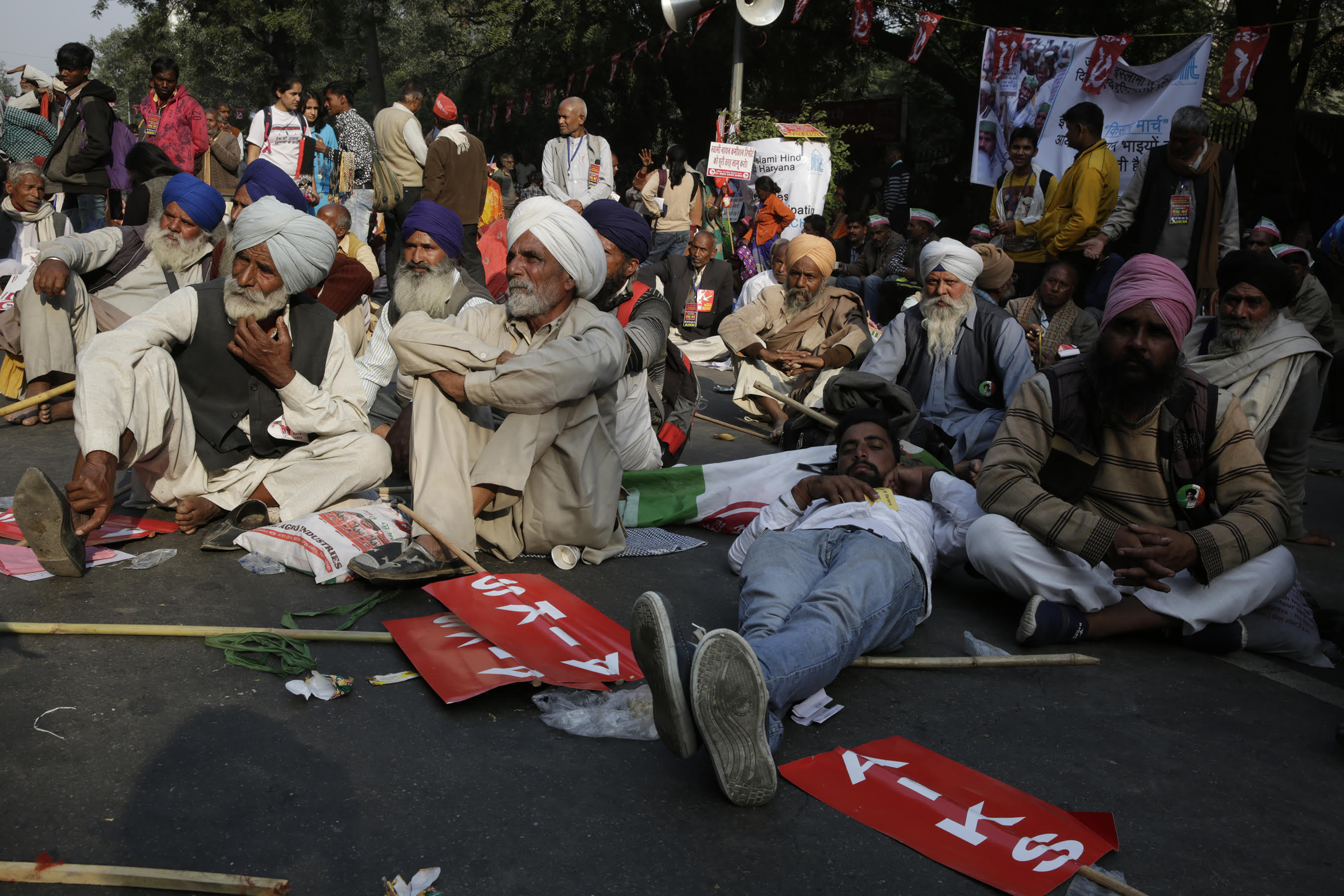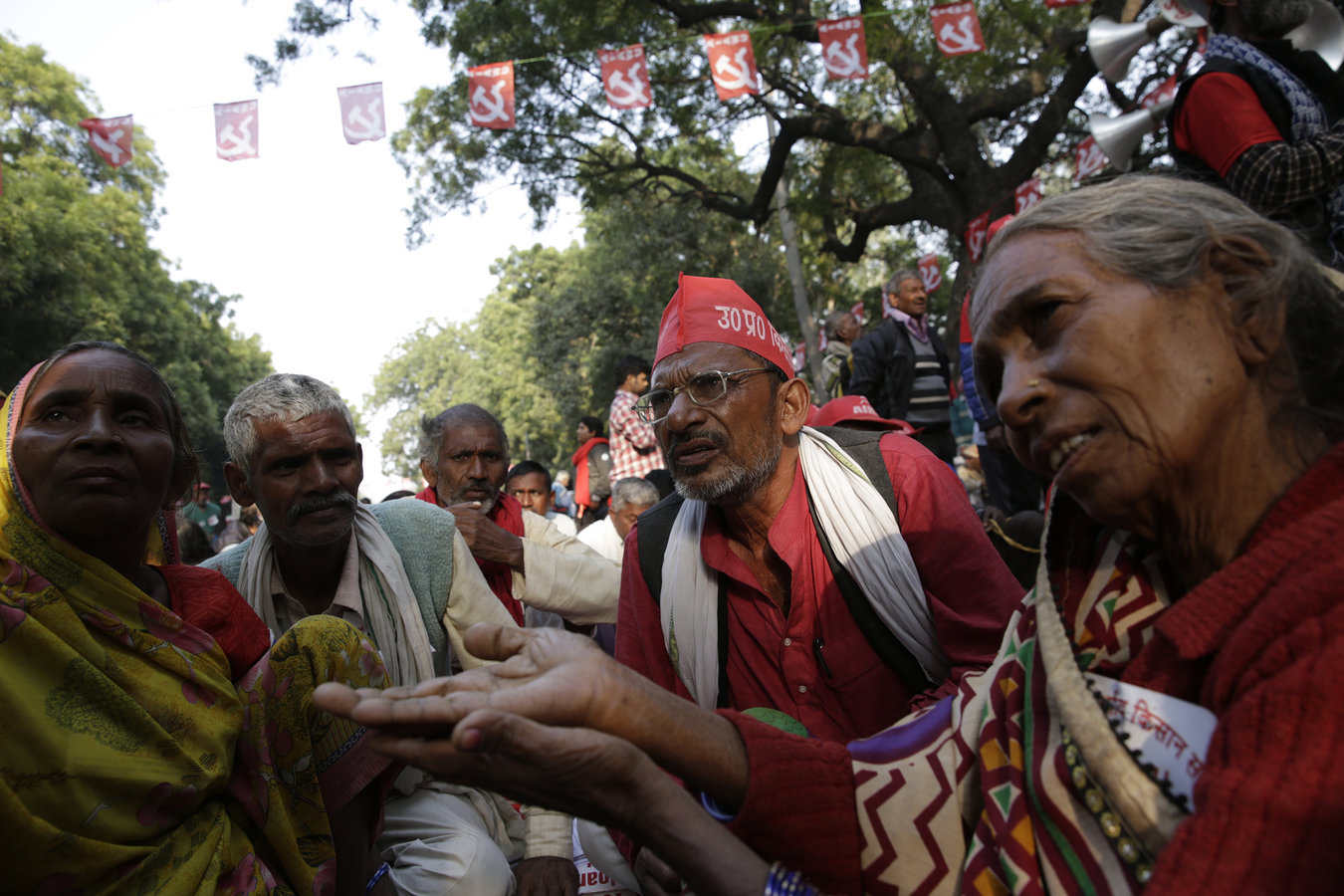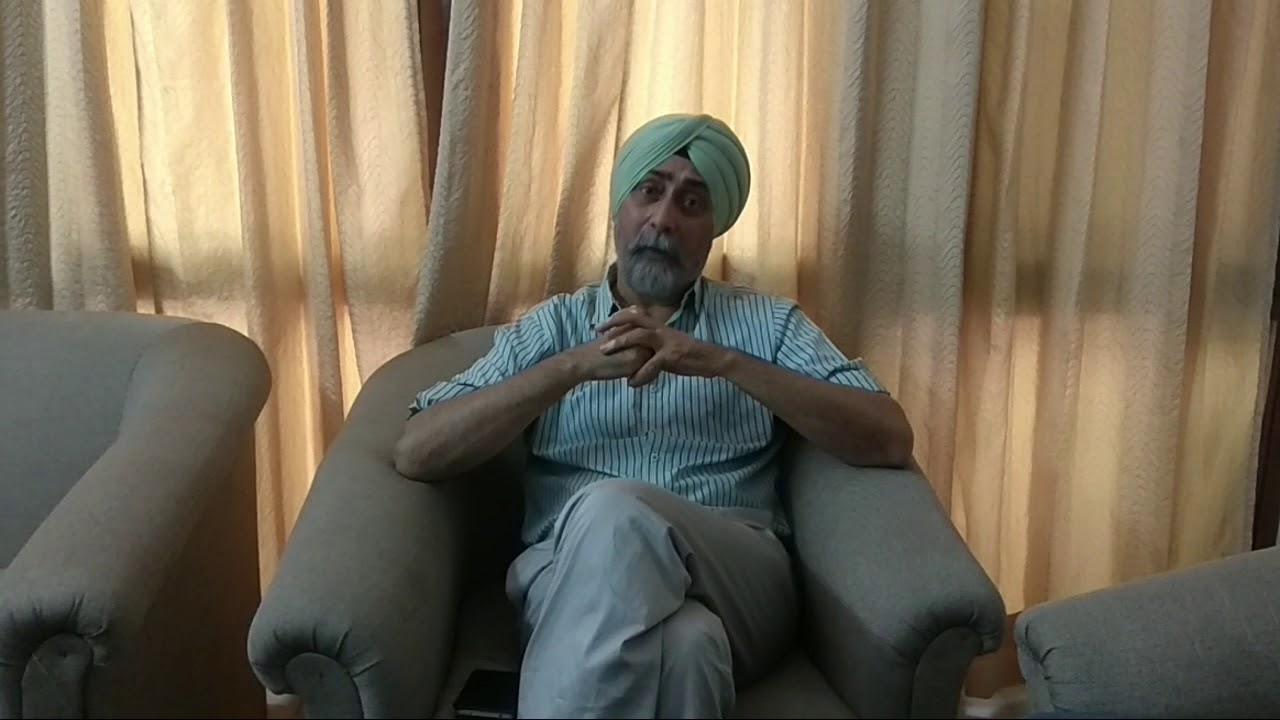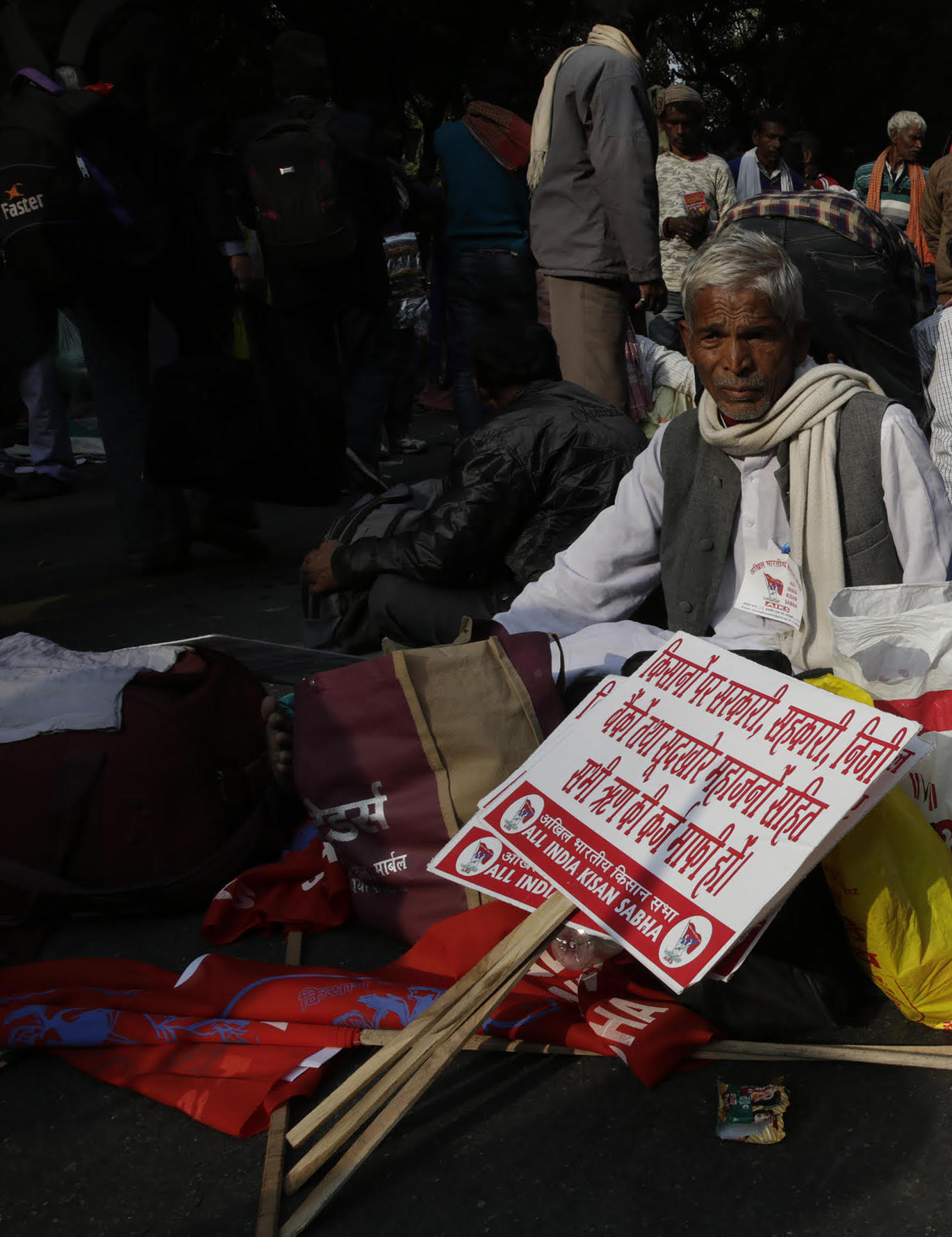

Every 30 minutes a farmer commits suicide in India, what will it take for the central government to pass the KisanMuktiBills ask the farmers?
The Agrarian Crisis hit its peak in 2017 as farmers struggled across the country, from Maharashtra, to Madhya Pradesh, to Tamil Nadu, to Bihar and Uttar Pradesh, for debt relief and fair remunerative prices. Understanding the debilitating need for farmer unification, in June 2017, some 200 unions working towards the agrarian cause came together under the umbrella of All India Kisan Sangharsh Co-ordination Committee (AIKSCC), thus becoming the first unified alliance between farmers across the country. AIKSCC then began thinking of ways to secure a better future for the farmers. Meanwhile, between June 2017 and November 2017 there were numerous protests under the #KisanMuktiMarch across the country. On November 20th 2017, the drafts of two bills were tabled in the #KisanMuktiSansad of women farmers. The two #KisanMuktiBills focused on the freedom from Indebtedness and on Guaranteed Remunerative Prices.

Farmers listen to the politicians addressing the rally
After the first drafts of the bill, detailed consultations across the country were organised between farmers, agricultural experts and local leaders to discuss the immediate grievances that needed to be addressed. By March 2018, the Bills were ready to be tabled and discussed in a roundtable in the Constitution Club. At the time, 21 political parties lent their support to the bills and the need for a special parliamentary session to discuss and pass these bills. These bills were then introduced to the Lok Sabha and Rajya Sabha respectively as private member bills. (These are bills that are introduced in the parliament by members of the parliament who are not part of the cabinet of ministers)
After meeting with the President and urging him to convene a special agrarian session in the parliament and getting no positive response from the government, the AIKSCC and its allies decided to march to Delhi in order to urge the government to address the farm crisis.
While in Delhi, all political parties besides the BJP addressed the farmers in the capital. 48-year-old Prabhakar Mule who travelled all the way from Maharashtra alongside his wife says that for him irrigation is a huge problem as he comes from a drought affected area, “When I voted for Narendra Modi in 2014 it was because he promised us Acche Din and Sabka Vikaas Sabke Saath, but now I have a strong feeling of being left behind because I don’t see the government doing anything for the farmers.” His wife, 45-year-old Prabha added that she was here because she wanted better wages, “we can hardly make ends meet on our farm, with little land and poor irrigation, I have no choice but to work on other farms as a labourer. I earn Rs. 180 a day and have to fight hard to get my money, we are exploited on all levels. We want standardised rates for everything,” she asserts.

Women demand better wages
It cost the Mule’s almost INR 2000 to make the journey which they funded themselves, “it was something that we felt we just had to do, the government needs to understand that if they keep ignoring us, they will not have our support.”
Hannan Mollah, AIKSCC said that the failure of the central government to address farmer issues is what had compelled them to organise this peaceful protest which had invited leaders from different political parties barring the BJP to address the rally.
VM Singh, National Convener-All India Kisan Sangharsh Coordination Committee added that, “Farmers are in a bad state, nobody realises that, every political party talks that they are doing so much for the farmers but needless to say, farmers are still committing suicide. We have made two bills—because ultimately whatever has to be done in this country, it is a democratic country, it has to be done through legislation. These bills are private member bills in the parliament and we have requested the government to take these two bills up in the parliament and pass them. We met the president of India also, there is no point in coming to Delhi and knocking around, it has to be done via legislation. We requested to convene a special session of the parliament here so that the bills can be passed, otherwise what happens in the parliament is that, even a no confidence motion is not taken up. We have got no response so now we are coming to Delhi to tell the PM that walk the talk—these are the bills, please pass them—if you can get the GST bill passed in a midnight session, why not these bills? They are synonymous with what the PM has been saying, so why not pass them. We are very hopeful because this is an election year, you have to somehow tell the country that what you are saying is correct and if what you are saying is right, then pass the bills. What you have said is wrong, then still pass the bills because that is what you had promised. That is the reason so many people voted for you. We sent a letter to the Prime Minister and I asked for an appointment with him earlier as well to convene a special session, he didn’t have the time to even respond, so we had little options. The farmers can make or break any political party and the government should be aware of that.

VM Singh, National Convener, AIKSCC
Every 30 minutes a farmer commits suicide in India, their lives are cheap. “Forced to live in abject poverty without any help from the government—in terms of remuneration or price regulation at the mercy of false promises, the farmers have no dignity in the country. We are forced to sell our crops at cheap rates to mafia that controls the market, we are yet to get paid for the sugar cane we supplied to the mills last year, in these circumstances, if we don’t kill ourselves, what do we do?” says an agitated 52-year-old, Mahendra Singh from Balliya, Uttar Pradesh.
30-year-old Kartar Singh from Punjab says that it is peak tilling season for him right now but he is still here, “We tear the soil apart and give you food, yet we die in poverty, in which world is this fair? Just give us better prices and loan waivers. If the government can waive off loans of big industrialists and come to their rescue time and again, why treat the farmers differently.”

Ram Kumar
67-year-old, Ram Kumar who made the journey all the way from rural Bihar says the journey to Delhi has brought him some hope, “for the first time in a year I do not feel alone because I have met so many people like me who have suffered as I did. The price I sold my last crop was a pittance, after investing so much on expensive fertilizer for which I had to borrow money, the returns were minimal, unexpected rainfall added to my misery, what is a poor man’s respite from this endless debt cycle? Ayodhya Nahi Chahiye, Karz Maafi Chahiye. Ram ka mandir bana bhi lenge, khaana nahi hoga to kiska mann Puja Main lagega? he says.
All images are the copyright of Ruhani Kaur